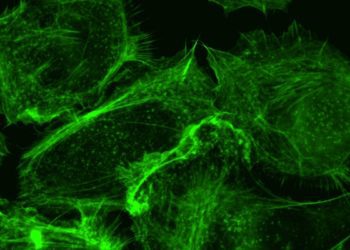Adjuvant treatment with catechol-O-methyltransferase inhibitors inferior to monoamine oxidase type B inhibitors or dopamine agonists in patients with Parkinson disease uncontrolled by levodopa therapy
1. No significant improvement in quality of life was observed between treatment with dopamine agonists compared to dopamine reuptake inhibitors (monoamine oxidase type B or catechol-O-methyltransferase inhibitors) as adjuvant therapy in patients later-stage Parkinson disease.
2. The use of either dopamine agonists or monoamine oxidase type B inhibitors as initial adjuvant therapy was preferable to catechol-O-methyltransferase inhibitors, suggesting a potential role of monoamine oxidase type B inhibitors as adjuvant therapy in patients with Parkinson disease.
Evidence Rating Level: 1 (Excellent)
Study Rundown: Although levodopa is an effective and commonly used initial treatment for Parkinson disease (PD), prolonged or high-dose use may lead to various complications. Subsequently, another drug class can be added to reduce motor complications, however, it is unclear which drug class is more effective as adjuvant therapy. This randomized trial compared long-term effects of adding a dopamine agonist vs a dopamine reuptake inhibitor (DRI), either a monoamine oxidase type B (MAO-B) inhibitor or a catechol-O-methyltransferase (COMT) inhibitor, to levodopa therapy on quality of life in patients with motor complications of PD. The primary endpoints were scores on the 39-item PD Questionnaire (PDQ-39) mobility domain and cost-effectiveness, assessed prior to study entry, at 6 and 12 months after randomization, and annually thereafter. Among 500 patients with PD, there were no statistically significant difference in PDQ-39 mobility scores between adjuvant therapy with dopamine agonists vs DRIs; however, scores were on average 4.2 points better with MAO-B inhibitors compared to COMT inhibitors. These results suggested that no measurable improvement in patient-rated quality of life was observed between treatment with dopamine agonists compared to DRIs, either MAO-B or COMT inhibitors, as adjuvant therapy in patients later-stage PD. Furthermore, outcomes were worse with the addition of COMT inhibitors compared to MAO-B inhibitors or dopamine agonists as adjuvant treatment in this patient population. A limitation of this study was the use of open-label treatments due to the study’s pragmatic design and thus, lending itself to the potential for performance and reporting bias.
Click to read the study in JAMA Neurology
Click to read an accompanying editorial in JAMA Neurology
In-Depth [randomized clinical trial]: This semifactorial randomized trial included 500 patients (mean [SD] age, 73.0 [8.2] years; 314 [62.8%] men; median follow-up [range], 4.5 [0-13.3] years) with idiopathic PD who developed uncontrolled motor complications, without dementia. The trial recruited from 64 centers in the United Kingdom, Czech Republic, and Russia between February 2001 and December 2009, where patients were randomized 1:1:1 to treatment with a dopamine agonist, MAO-B inhibitor, or COMT inhibitor. Overall, patients treated with dopamine agonists had a mean PDQ-39 mobility score that was 2.4 points (95%CI, −1.3 to 6.0 points) better than that of the combined MAO-B and COMT groups, however, statistically not significant (P=.20). Regarding DRIs, patients treated with MAO-B inhibitors had a mean PDQ-39 mobility and EuroQol 5-dimension 3-level (EQ-5D-3L) utility score that was 4.2 points (95%CI, 0.4-7.9 points; P=.03) and 0.05 points (95%CI, 0.003-0.09 points; P=.04) better than those in the COMT group respectively. Nonsignificant improvements were found in the PDQ-39 summary index (mean difference, 2.2 points; 95%CI, −0.2 to 4.5 points; P=.07) as well as nonsignificant reductions in dementia (rate ratio [RR], 0.70; 95%CI, 0.47-1.03; P = .07) and mortality (RR, 0.76; 95%CI, 0.56-1.03; P=.07). Lastly, outcomes were similar when dopamine agonists were compared with MAO-B inhibitors.
Image: PD
©2021 2 Minute Medicine, Inc. All rights reserved. No works may be reproduced without expressed written consent from 2 Minute Medicine, Inc. Inquire about licensing here. No article should be construed as medical advice and is not intended as such by the authors or by 2 Minute Medicine, Inc.



![Adverse pregnancy outcomes associated with thrombophilias [Classics Series]](https://www.2minutemedicine.com/wp-content/uploads/2015/07/Classics-2-Minute-Medicine-e1436017941513-350x250.png)





